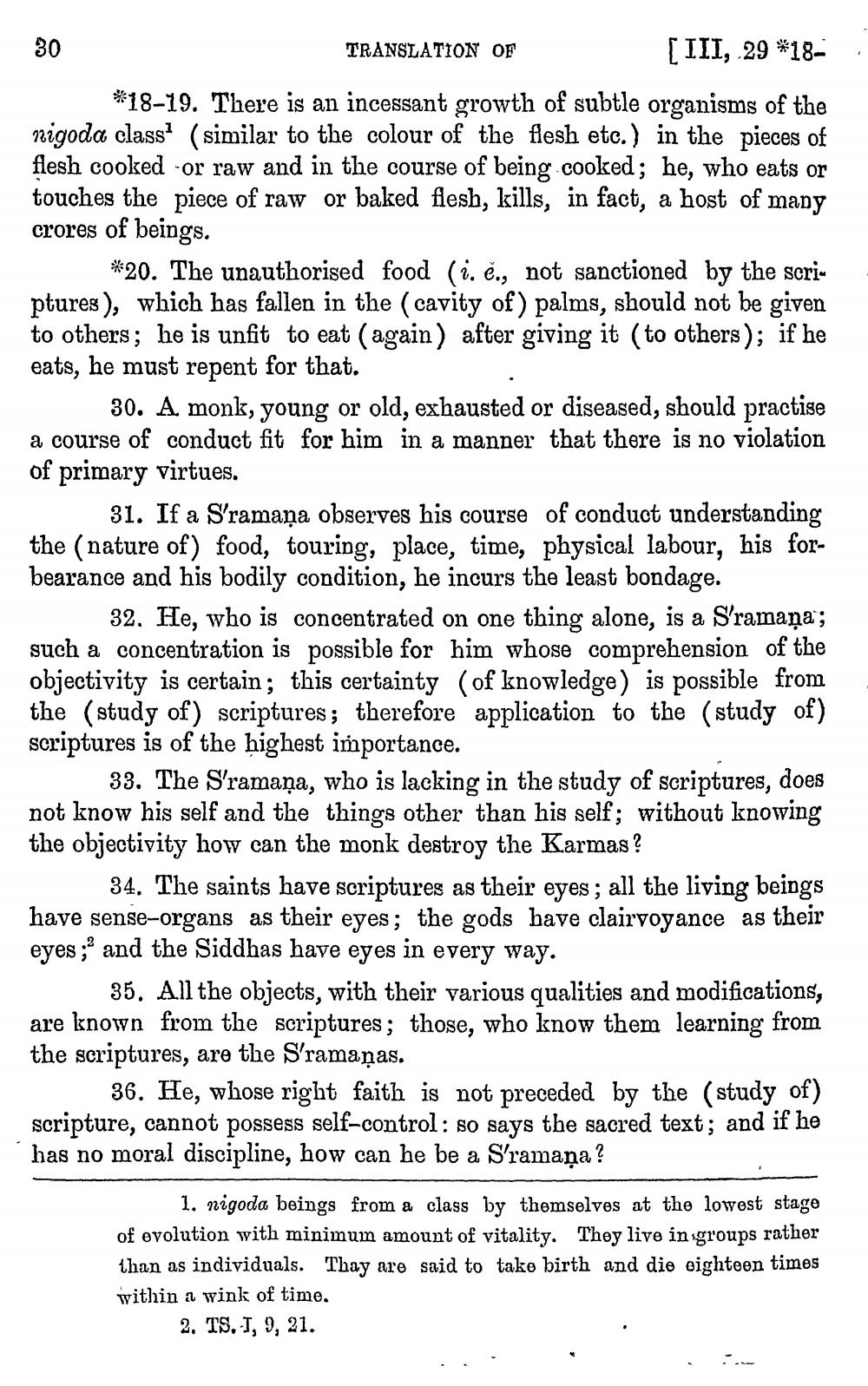________________
30
TRANSLATION OF
[III, 29 *18
*18-19. There is an incessant growth of subtle organisms of the nigoda class (similar to the colour of the flesh etc.) in the pieces of flesh cooked or raw and in the course of being cooked; he, who eats or touches the piece of raw or baked flesh, kills, in fact, a host of many crores of beings.
*20. The unauthorised food (i. e., not sanctioned by the scriptures), which has fallen in the (cavity of) palms, should not be given to others; he is unfit to eat (again) after giving it (to others); if he eats, he must repent for that.
30. A monk, young or old, exhausted or diseased, should practise a course of conduct fit for him in a manner that there is no violation of primary virtues.
31. If a S'ramana observes his course of conduct understanding the (nature of) food, touring, place, time, physical labour, his forbearance and his bodily condition, he incurs the least bondage.
32. He, who is concentrated on one thing alone, is a S'ramaņa; such a concentration is possible for him whose comprehension of the objectivity is certain; this certainty (of knowledge) is possible from the (study of) scriptures; therefore application to the (study of) scriptures is of the highest importance.
33. The S'ramana, who is lacking in the study of scriptures, does not know his self and the things other than his self; without knowing the objectivity how can the monk destroy the Karmas?
34. The saints have scriptures as their eyes; all the living beings have sense-organs as their eyes; the gods have clairvoyance as their eyes; and the Siddhas have eyes in every way.
35. All the objects, with their various qualities and modifications, are known from the scriptures; those, who know them learning from the scriptures, are the S'ramanas.
36. He, whose right faith is not preceded by the (study of) scripture, cannot possess self-control: so says the sacred text; and if he has no moral discipline, how can he be a S'ramaņa?
1. nigoda beings from a class by themselves at the lowest stage of evolution with minimum amount of vitality. They live in groups rather than as individuals. Thay are said to take birth and die eighteen times within a wink of time.
2. TS. I, 9, 21.




